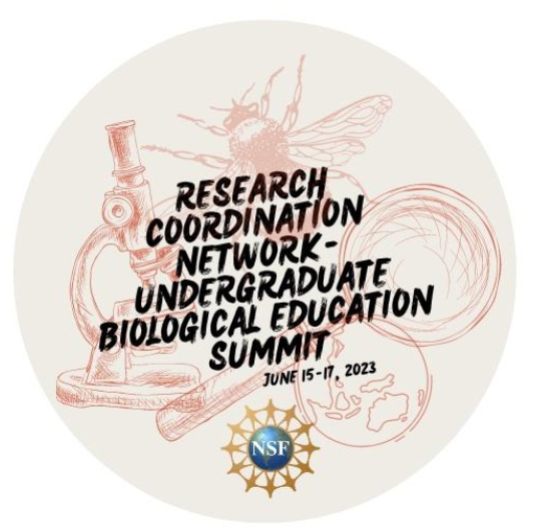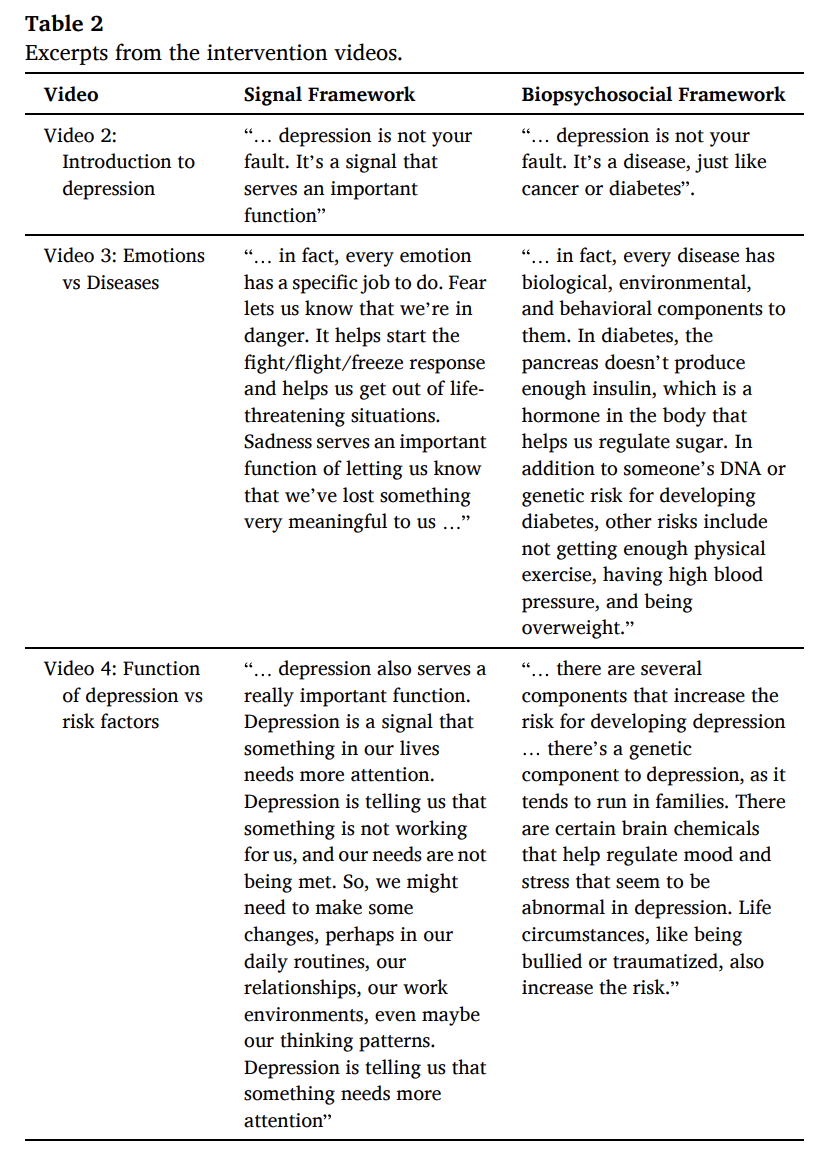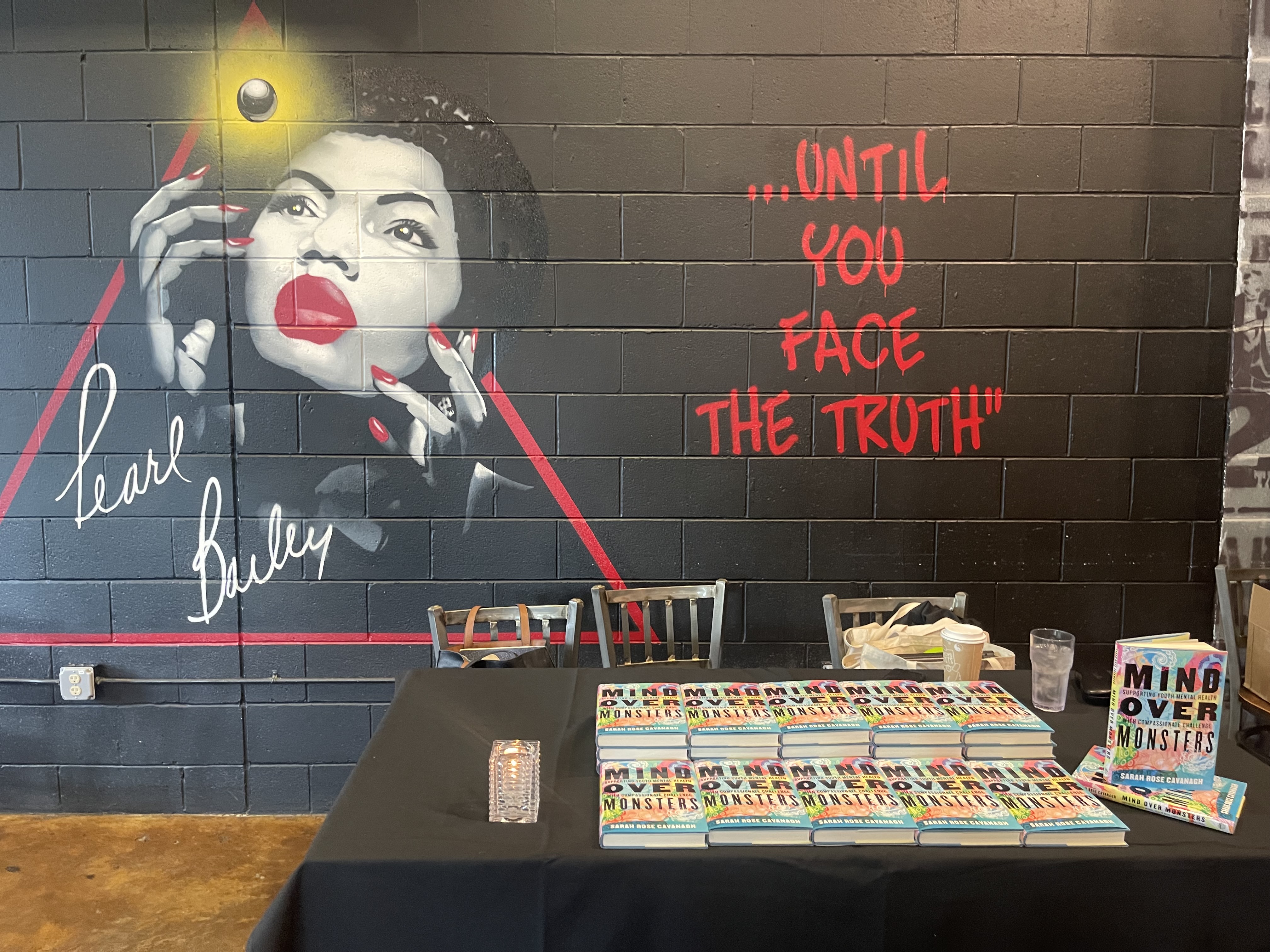All About Framing: Depression, Collaborative Learning, Mental Health Social Contagion
And a bit of frantic rest.
Welcome to Newsletter Twenty of Once More, With Feeling.

We are in summer, newsletter friends. For many of us, it is a time of warmth, gatherings, and trying frantically to replenish and rejuvenate.
Thanks for reading Once More, With Feeling! Subscribe for free to receive new posts and support my work.
We know from extensive bodies of psychological research that the stories we tell ourselves about the challenges we face have outsize influences on our biological, psychological, and social responses to those challenges, and so perhaps “frantically trying to rest” is not the frame I should choose for summer.
As it happens, choosing frames is the theme of this edition of the newsletter.
BE THE SPARK - Thoughts on Teaching and Learning
This June I had the honor of attending a DC-based summit for all of the principal investigators (PIs) of the Research Coordination Networks in Undergraduate Biology Education (RCN-UBEs) funded by the National Science Foundation (NSF).


My network’s Co-PI Michele Lemons and I had a wonderful time brainstorming with other scientists and the NSF about the success of the program in general, how to assess whether we were collectively making a difference in inclusive excellence in biology education, and where to go from here. Michele and I also welcomed the opportunity to do some brainstorming about turning our one-year incubator grant into a full network.
Our particular network (TUnE-Bio) is focused on tuning assessment, feedback, and grading in undergraduate biology education in order to increase student motivation, promote equitable outcomes, and combat “weed-out” culture.
You can read about the results of our incubator year here (that same link will include slides and video of our webinar sharing the results of a survey of 297 introductory biology faculty about their grading and feedback practices, hopes, and dreams) and you can see our QUBES website here. If you’d like to be added to a future listserv/message server to keep apprised of our doings, sign up here!
If you’d like to be added to a future listserv/message server to keep apprised of our doings, sign up here!
As I’m finishing up this newsletter, the Supreme Court ruled against race-conscious admissions, a Gender Studies instructor was stabbed for teaching her course, and The Chronicle issued a report on the “hollowing out” of higher education. In bleak news times like this, I’m not sure what to do but put my head down and work on our grant application to improve undergraduate education along lines of motivation and equity. It’s a frame that makes me feel like there is hope, and we have power.
OUR MONSTERS, OURSELVES - Uncertainty, Challenges, Mental Health
In another blow to the “chemical imbalance” model of depression, a group of stellar researchers propose an alternative frame to thinking about depression: that it is an important signal to the individual that something about their life needs to change.
In the article, lead author Hans Schroder and colleagues share how consensus explanations for the etiology of depression have changed over the centuries from the spiritual to the psychological to the biogenetic, and how for the last several decades in Western society the biogenetic “chemical imbalance” model has enjoyed dominance. This framing can have benefits, including decreased self-blame (It’s not me; it’s my brain). However, this framing is also associated with lower hopes for recovery and can amplify stigma, as it implies that the causes of depression are essential to the person and reflect some unchangeable nature.
The authors propose another frame that may be more constructive: framing depression as serving an important function to the individual, essentially signaling the need for change. In this frame, depression emerges when something about the individual’s current life is not meeting their psychological needs, and is calling the person’s attention to a need to address the situation.

In a pre-registered, immersive situation experiment, they randomly assigned 877 people with histories of depression (but not extensive treatment for it) to conditions where they were exposed to videos and information from therapists that either emphasized a depression-as-signal or depression-as-disease model. The depression-as-signal condition was associated with more positive ratings of of efficacy, self-stigma, and beliefs about the adaptive nature of depression.
The authors write that this framing “ is both scientifically supported and….leverages a rich social cognition literature to prevent the downsides of biogenetic messages while instilling hope, curiosity, and motivation to seek help, without increasing stigma.” Sounds wonderful to me.
While this isn’t the focus of the authors, for me this frame also highlights that sometimes, the problem that needs to be solved is not in the individual’s power to change—that the overwhelming numbers of people struggling with depression and anxiety at the moment may be a collective signal that something about our societal structures need to change.
EMOTION & MOTIVATION - Feeling and Striving
We know that learning is deeply social and human beings are ultrasocial creatures predisposed to working in groups to solve complex issues. Knowing this, we often stick people in groups to work with each other—in classrooms, in the office—assuming that they’ll just magically cooperate and have good dynamics.
We know this practice often runs afoul.

In this great article, Nikki Lobczowski examines the role of emotions in collaborative learning, arguing that we need more research on the interplay of student emotions and their regulation in effective group collaboration—and provides some guidance on how instructors can adjust their interventions, lessons, and conversations with students to better guide their group work. The lessons she draws hold import for groups beyond the classroom.
HIVEMIND - Our Synchronous Selves
In an article that starts out nearly identically as my book HIVEMIND (with a rash of contagious fainting episodes), Helen Amass carefully addresses the question of whether some aspects of the mental health crisis among youth might be driven by social contagion, particularly over social media. She lands on the possibility that rather than social contagion driving up mental health symptoms per se, it may be that certain unhelpful interpretations (certain frames) of such symptoms may be spreading among youth. For instance, that negative emotions are always a sign of an underlying pathology rather than helpful signals from their brains (see above article on depression frames). Or that it is typical, and even socially approved, behavior to regularly skip meals. Or that certain unhealthy coping strategies are in fact positive responses to emotional challenges.
Amass also considers the fact that over-pathologizing stress and negative emotions can also lead teachers to take a hands-off approach in worry they’ll mishandle something mental-health-related, when so many students would benefit from simple calm, mentoring connections with teachers and peers.
That all said, we do know that worrisome behaviors like self-harm, eating restriction, and suicide can occur in clusters and be mediated by both social contagion and social media. These provide more reasons social media companies should be subject to tighter regulation.
INCIDENTALLY - Reframing a Book Event Fail
A few months after a viral Twitter thread about bookstore signings with zero attendees (the outpouring of support the author received from some pretty famous folks warms the heart), I had my own such experience.
I was excited to join Busboys & Poets while in town in D.C. to be “in conversation” with the wonderful Abigail Marsh, neuroscientist and psychologist at Georgetown University and author of the gripping The Fear Factor: How One Emotion Connects Altruists, Psychopaths, and Everyone In-Between.
Except not a person showed*.

Ah well. I re-read the reassurances in the viral thread (reframing!), and Abby and I had a truly lovely dinner together during which we talked about teaching, learning, psychology, writing, and the many intersections of our academic/social networks— we were “in conversation” after all.
You should definitely pick up a copy of her book.
In other book news, I am officially shifting from “please buy the book!” self-promotion mode and into “please review the book!” mode, so if you have read some Mind Over Monsters and found something to enjoy about it, I’d love it if you’d tell Amazon or Goodreads so.
Good luck with your summers, newsletter friends. Hope you are able to frame these warm months as non-frantic rest.
* except for the one lovely person who stopped by late - best of luck with your burgeoning clinical career!
Thanks for reading Once More, With Feeling! Subscribe for free to receive new posts and support my work.
